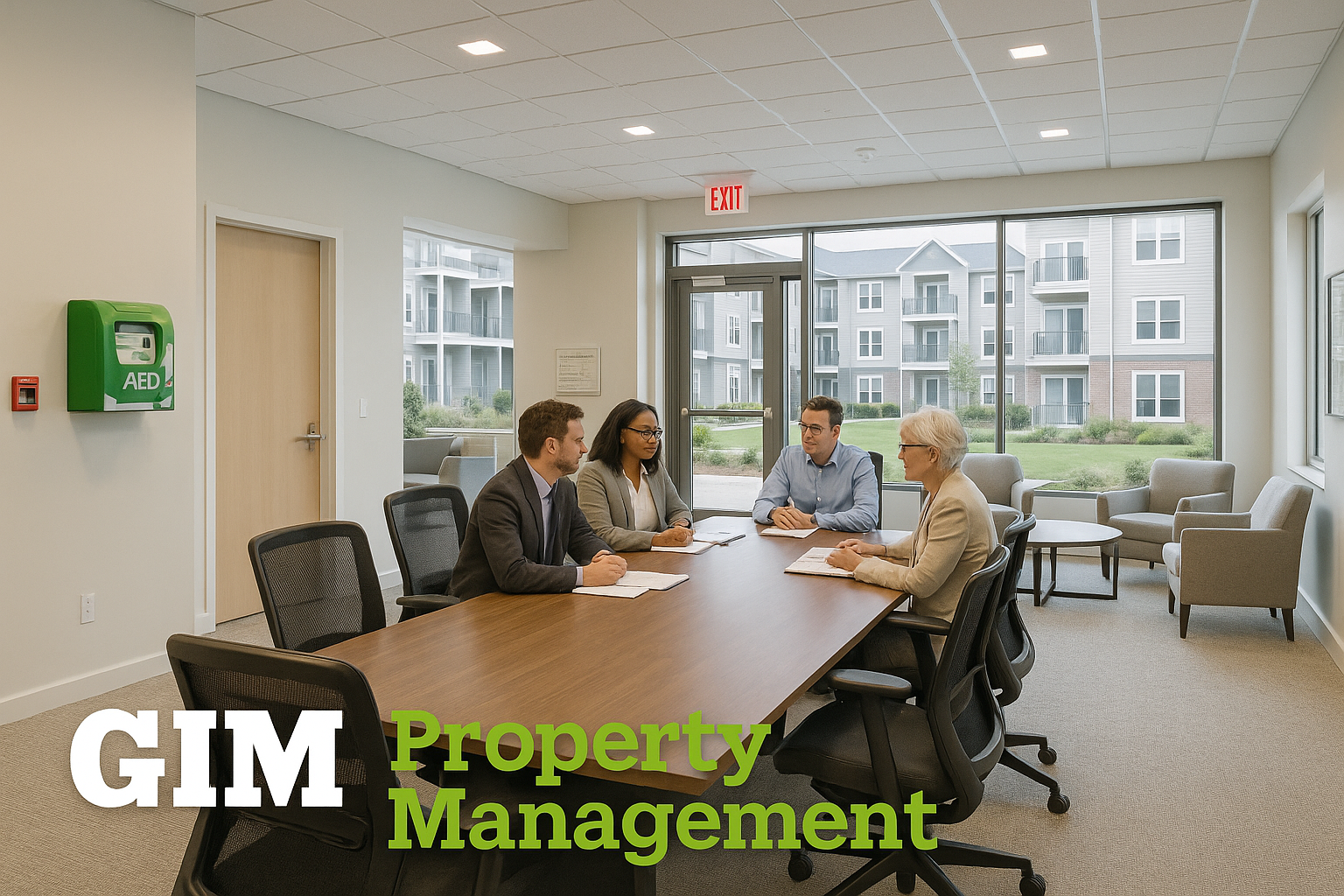Get Ready with GIM Property Experts
Discover the critical steps for emergency preparedness in Massachusetts property management, ensuring safety and compliance with stringent legal standards.

Discover the critical steps for emergency preparedness in Massachusetts property management, ensuring safety and compliance with stringent legal standards.

mdx
In the ever-evolving landscape of property management, one thing remains constant: the need for comprehensive emergency preparedness. Whether dealing with natural disasters, fires, or other unforeseen events, having a plan in place is not just prudent—it's essential for the safety and well-being of residents. For property managers and HOA boards in Massachusetts, where legal standards are stringent, emergency preparedness takes on an added layer of importance.
At GIM Property Management, we focus on crafting emergency response plans that meet Massachusetts legal requirements while addressing the unique needs of each community. Is your property management strategy prepared for the unexpected in Massachusetts? Let's delve into the critical aspects of emergency preparedness and response planning to ensure your community is ready for any eventuality.
Emergency preparedness is the process of developing plans and protocols to effectively respond to emergencies, minimizing harm and ensuring a swift return to normalcy. In Massachusetts, where weather conditions can be unpredictable, and older infrastructure presents unique challenges, having a well-structured plan is crucial. This plan should include risk assessment, resource allocation, and clear communication strategies to ensure everyone's safety.
The primary purposes of emergency preparedness include:
Several key factors contribute to why emergency preparedness is significant:
Massachusetts has strict regulations regarding emergency planning, and non-compliance can result in legal repercussions. Ensuring that all plans meet state standards is crucial for avoiding fines and ensuring resident safety.
A comprehensive plan protects residents by preparing them for quick and efficient evacuation or sheltering during emergencies, reducing potential injuries and fatalities.
Proper preparedness can minimize damage to property and assets, saving thousands in repair costs and preserving property value.
Communities known for their preparedness attract more residents. A well-managed emergency response plan enhances your community's reputation as a safe and secure place to live.
The age and condition of properties in Massachusetts often require tailored operational needs to ensure effective emergency response. Management plays a crucial role in maintaining these systems and ensuring compliance.
The value of professional management lies in its ability to integrate these tasks seamlessly, ensuring a robust preparation plan that meets all legal and safety requirements.
Conduct a Risk Assessment
Develop a Comprehensive Plan
Regular Training and Drills
Update Safety Equipment Regularly
Implement Effective Communication Systems
Create Evacuation Routes and Maps
Establish a Resident Preparedness Program
Form an Emergency Response Team
Review and Revise Plans Annually
Leverage Technology
Need Help Managing Your Budget or Strategy? At GIM Property Management, our team is ready to assist you in developing a cost-effective and compliant emergency preparedness strategy tailored for your community. Contact us today for expert guidance and support.
Effective emergency preparedness involves a careful balance of cost management and value maximization. By focusing on risk assessment, resource allocation, and community engagement, property managers and HOA boards can create robust plans that protect both residents and assets. Transparency in planning and ongoing involvement from all stakeholders ensure that strategies remain effective and up-to-date.
Contact GIM Property Management to request a consultation and take the first step towards enhancing your community's emergency preparedness. We are here to help you build a safer, more resilient future.
Contact us to enhance your property's emergency preparedness strategy today.
Contact Us